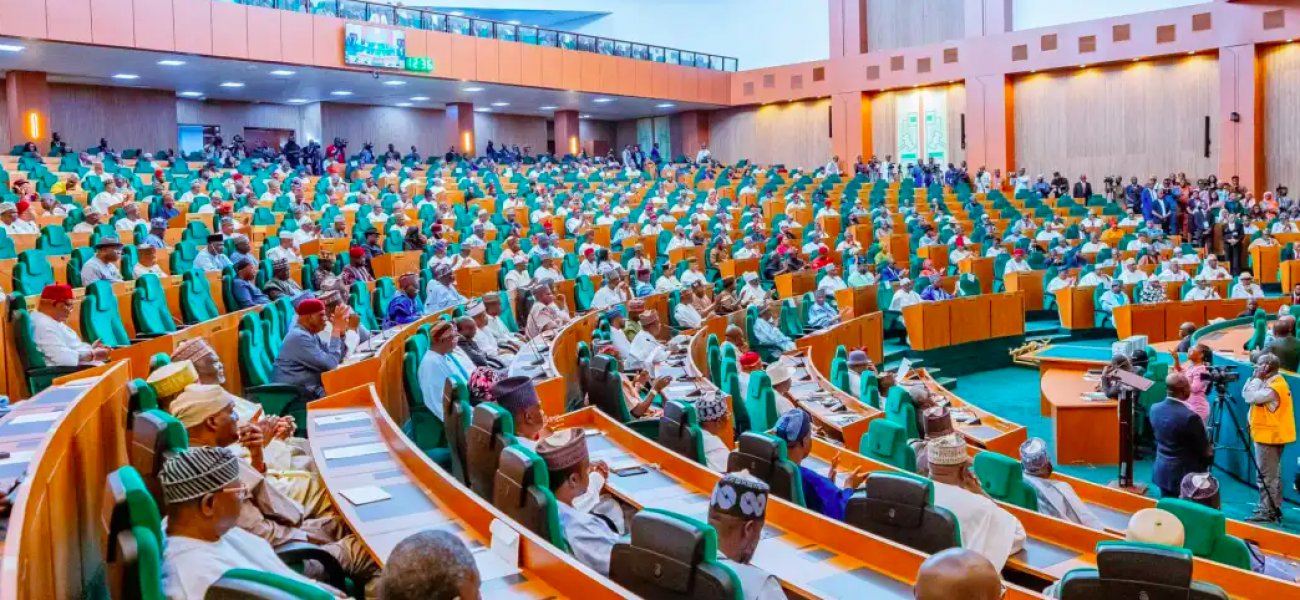
Nigeria’s Lawmakers Sound Alarm: House of Reps Renews Push for Unified National Data System, Calls for Homegrown Tech Revolution
In a bold move that reignites a long-standing national debate, the House of Representatives has called for the urgent creation of a unified national data system, warning that Nigeria’s current fragmented identity and information infrastructure is crippling effective governance, economic planning, and national security. Lawmakers on Thursday expressed deep concern
In a bold move that reignites a long-standing national debate, the House of Representatives has called for the urgent creation of a unified national data system, warning that Nigeria’s current fragmented identity and information infrastructure is crippling effective governance, economic planning, and national security. Lawmakers on Thursday expressed deep concern that the lack of a centralized data repository continues to hamper everything from policy formulation to security operations, welfare distribution, and the efficiency of public institutions.
During the plenary session, members of the House emphasized that the country’s disjointed data systems—spread across agencies like the National Identity Management Commission (NIMC), Independent National Electoral Commission (INEC), Federal Road Safety Corps (FRSC), and various financial and telecommunications institutions—have created a confusing web of duplication and inefficiency that weakens Nigeria’s ability to make informed decisions. Lawmakers warned that until Nigeria harmonizes its identity systems, it will continue to suffer economic losses, security lapses, and poor governance outcomes.
According to several legislators, the ongoing data fragmentation is one of the most critical structural problems facing Nigeria’s governance architecture. They pointed out that while billions of naira have been spent on multiple data projects over the years, there is still no central, accessible, and secure database that integrates information about citizens, residents, and businesses. “We cannot continue to operate in silos,” one lawmaker lamented, noting that agencies compete rather than collaborate, each hoarding data in isolated systems built with inconsistent standards.
The renewed call comes at a time when the government is increasingly under pressure to modernize its digital governance infrastructure. Lawmakers are insisting that Nigeria must take ownership of its technological destiny by investing in homegrown data management and identity solutions instead of overrelying on foreign contractors and imported software systems. They argued that building indigenous capacity in data technology will not only secure national sovereignty but also create jobs, reduce capital flight, and promote innovation within Nigeria’s fast-growing tech ecosystem.
The House further expressed concern that the country’s dependence on foreign technologies exposes it to risks of data breaches and surveillance. Several lawmakers noted that in an era where data has become the new oil, Nigeria cannot afford to let sensitive national information rest in the hands of external actors. They stressed the need for homegrown cybersecurity frameworks and digital infrastructure that can be trusted to protect citizens’ data and national intelligence.
The lawmakers drew attention to the inefficiencies that have plagued sectors such as banking, education, and social welfare due to poor data integration. For example, citizens are often forced to repeat biometric captures for different services—one for voter registration, another for driver’s licenses, yet another for SIM card registration, and again for national ID cards. This repetitive process, they argued, wastes public resources, frustrates citizens, and increases opportunities for corruption and fraud.
They also pointed to the inconsistencies in government databases that have made it difficult to track the country’s population accurately. This, in turn, has affected everything from budgeting and taxation to electoral planning and emergency response. “How can a country plan when it doesn’t even know how many people it has?” one member asked rhetorically, warning that Nigeria’s failure to maintain a reliable national data system was undermining the government’s capacity to deliver basic services and respond effectively to crises.
The House’s call for a unified data system aligns with earlier recommendations by policy experts who have repeatedly emphasized the importance of digital integration for sustainable development. Many analysts argue that without a centralized identity system, Nigeria cannot effectively implement social welfare programs, combat financial crimes, or achieve the goals outlined in its digital economy agenda. They note that a unified database would improve efficiency in revenue collection, enhance national security, and make it easier to identify and support vulnerable citizens.
In addition to calling for data harmonization, lawmakers underscored the importance of fostering local innovation in data management technologies. They argued that Nigeria has the human capital to build indigenous systems if the government invests in research, digital infrastructure, and partnerships with local universities and tech startups. According to them, the success stories of Nigerian fintechs and software developers are clear proof that the country can develop secure, scalable digital platforms tailored to its unique needs.
Some members of the House cited examples from other African nations that have successfully implemented integrated digital systems. They referenced countries like Kenya and Rwanda, where national identity databases have been harmonized with public services, enabling seamless digital governance. Lawmakers said Nigeria’s size and resources give it an even greater potential to build a robust, homegrown data ecosystem that can serve as a model for the continent.
However, they acknowledged that achieving this goal will require strong political will, adequate funding, and strict data protection laws. They called on the executive arm of government to prioritize data integration as a matter of national importance and to work closely with the private sector to develop sustainable solutions. The lawmakers also urged relevant agencies to cooperate and share information rather than competing for jurisdiction or recognition.
Public reaction to the House’s renewed advocacy has been largely supportive, with many citizens expressing hope that the government will finally take decisive steps to fix Nigeria’s long-standing data crisis. Civil society groups and technology experts have also weighed in, describing the initiative as a crucial step toward modernization and transparency. They, however, cautioned that any effort to create a unified data system must be accompanied by strict adherence to privacy standards to prevent abuse or unauthorized access to personal information.
Critics, on the other hand, expressed skepticism, noting that similar resolutions have been passed in the past without tangible results. They warned that unless the government enforces accountability and transparency in the execution of the project, the current push could end up as another expensive policy pronouncement that fades into bureaucratic inertia.
Despite these concerns, optimism remains high that the renewed attention from the House could mark a turning point in Nigeria’s digital governance journey. The lawmakers’ emphasis on homegrown technological innovation resonates with the country’s broader ambition to become Africa’s leading digital economy. As one legislator put it, “We must not just consume technology; we must create it. We must not just buy data systems; we must own them.”
The House of Representatives has resolved to refer the motion to its relevant committees on ICT, national planning, and public service to explore actionable frameworks for implementing a unified data system. The committees are expected to engage with key stakeholders, including the Ministry of Communications, Innovation and Digital Economy, and the National Identity Management Commission, to chart a clear path forward.
As Nigeria stands at the crossroads of technological transformation, the message from its lawmakers is unmistakable: the time for fragmented systems and imported solutions is over. The country must embrace a unified, homegrown data framework to drive governance, security, and economic growth in the digital age. Whether this latest call will finally translate into action remains to be seen, but the urgency in the House’s tone signals a growing recognition that Nigeria’s future depends on how it manages and protects its most valuable asset—data.
Share this post
Related Posts

Zion Movement Founder Denies Role in Blogger’s Detention Drama: What’s Really Happening?
The founder of Zion Prayer Movement Outreach, Evangelist Ebuka Obi, has publicly refuted allegations linking...

Relief in Lagos as Missing Brother of Reality TV Stars Ocee and Ozee Mbadiwe Found Safe
The atmosphere of anxiety that gripped friends, family, fans, and the wider Lagos community over...

Regina Daniels Makes Glamorous Comeback Amid Marital Crisis Rumors
Nollywood actress and producer Regina Daniels has made her first public appearance since reports of...